
CAN MUST SHOULD general grammar… English ESL worksheets pdf & doc
Or there are any difference in meaning? Actually, I think I'm not familiar with "what must it be like". By using "must", it gives me a strong feeling like i was supposed to think about that. I'm not sure. Please help. "I turn on my side and close my eyes. What must it be like, to have a boy like you so much he cries for you?

Notice Employees Must Wash Hands Before Returning To Work Sign Aluminum Metal
But if you must use a modal auxiliary verb, you'll have to choose A. must be; it's the modal we use for certainty—for deductions and conclusions: I can't find my wallet anywhere. It must be lost. That means that since you are unable to find your wallet, you have concluded that it is lost. Or, as we say around here . . . No shit, Sherlock.

This Must Be the Place (2011)
from English Grammar Today Must: forms Affirmative (+) form Must comes first in the verb phrase (after the subject and before another verb): She must have lots of friends. Must can't be used with another modal verb. This must be your sister. Not: This must can be your sister. or This can must be your sister. Negative (−) form
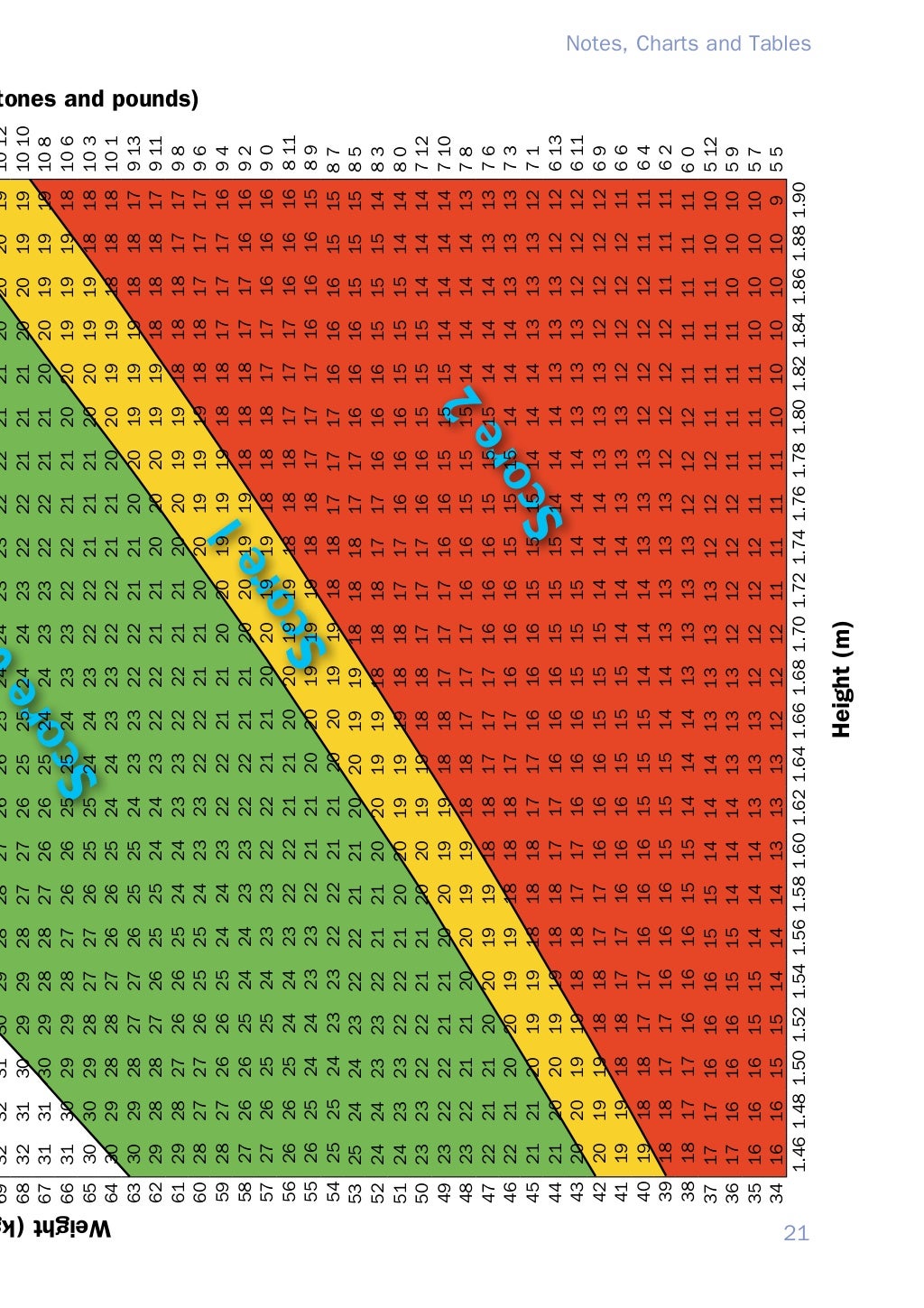
How to use must
used to show that it is necessary or very important that something happens in the present or future: Meat must be cooked thoroughly. I must get some sleep. You mustn't show this letter to anyone else. Luggage must not be left unattended (= it is against the rules). formal Must you leave so soon? formal "Must I sign this?" "Yes, you must."
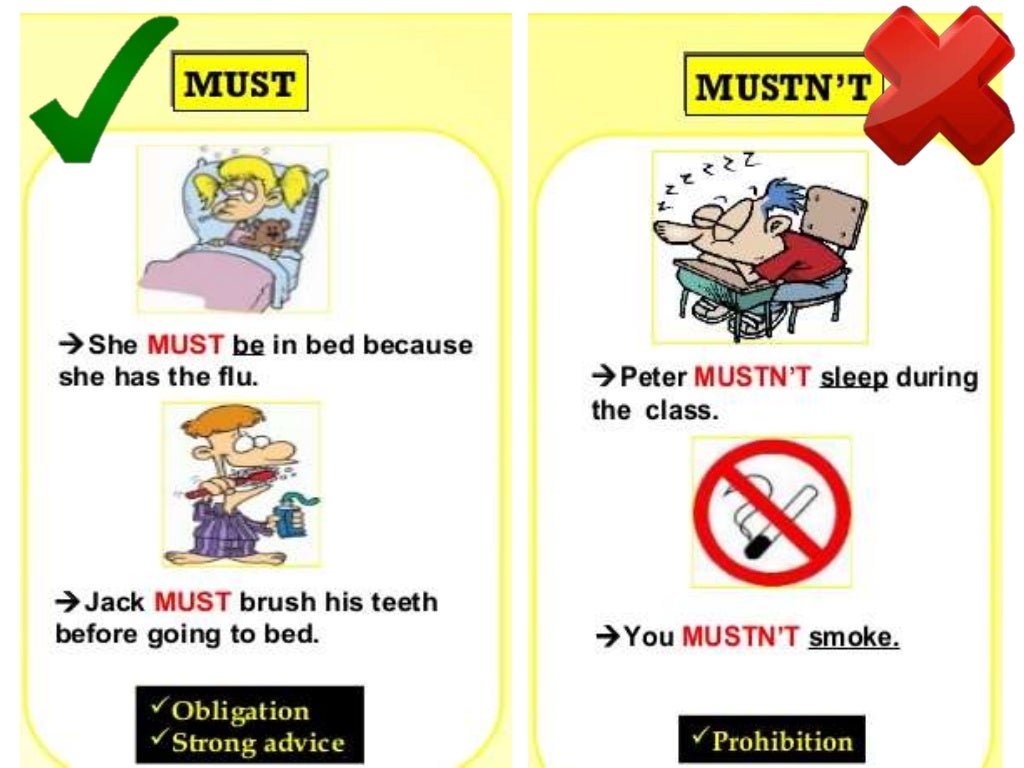
Must and mustn't
Swatting is a type of harassment that involves trying to trick police into sending a heavily armed raid to someone's home — often a SWAT team — when no actual crime is in progress, according.
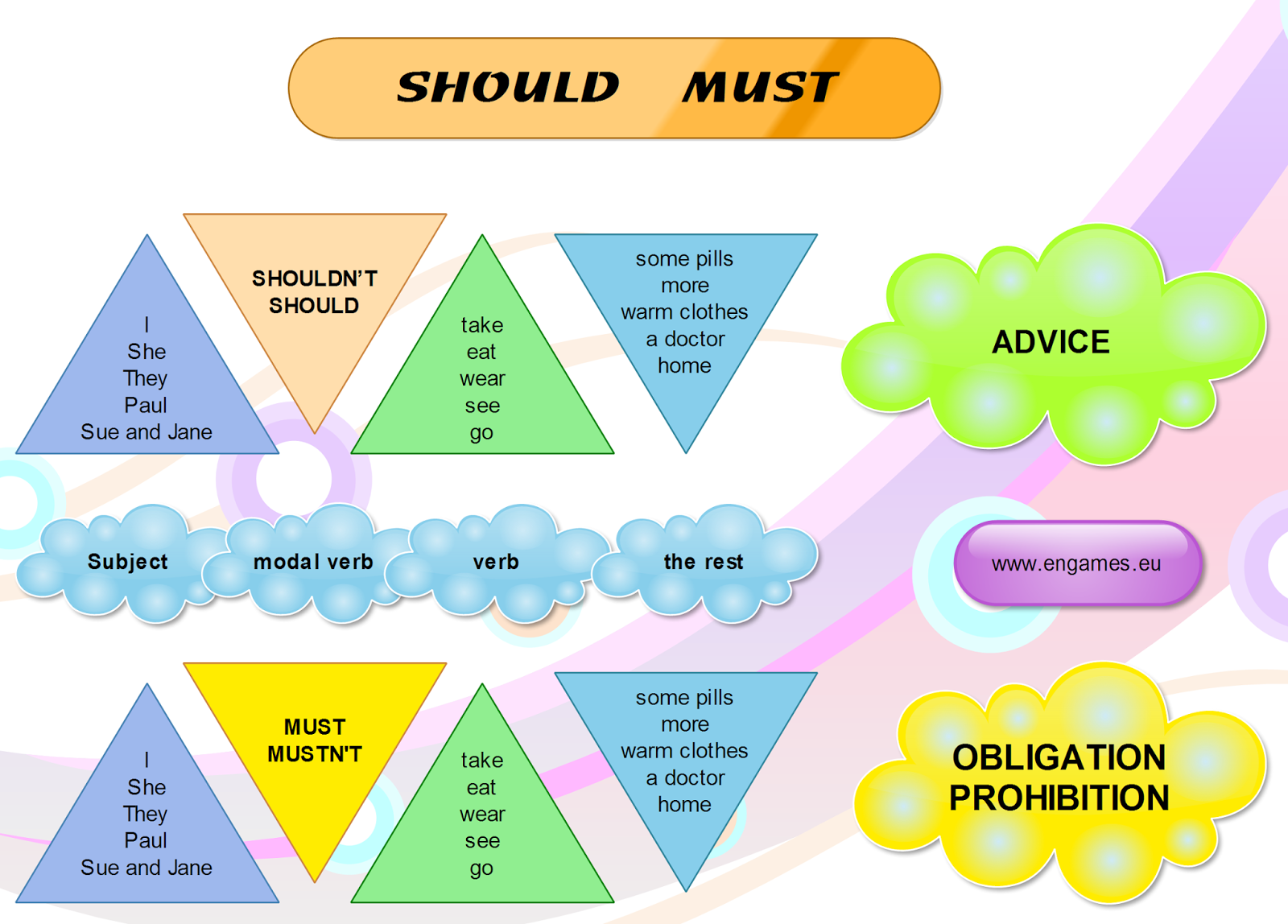
Casvi4primary Unit 8
Must is a Modal Auxiliary Verb. (The other modals in English are may, might, can, could, will, would, shall, and should. What follows applies to all of them, not just must .) All modals have two different types of meaning:, one meaning, called the Epistemic sense of the modal,

English Grammar Must And Have To, Mustn’t And Don’t Have To
verb məs (t), ˈməst present tense and past tense, all persons must Synonyms of must auxiliary verb 1 a : be commanded or requested to you must stop b : be urged to : ought by all means to you must read that book 2 : be compelled by physical necessity to one must eat to live : be required by immediate or future need or purpose to
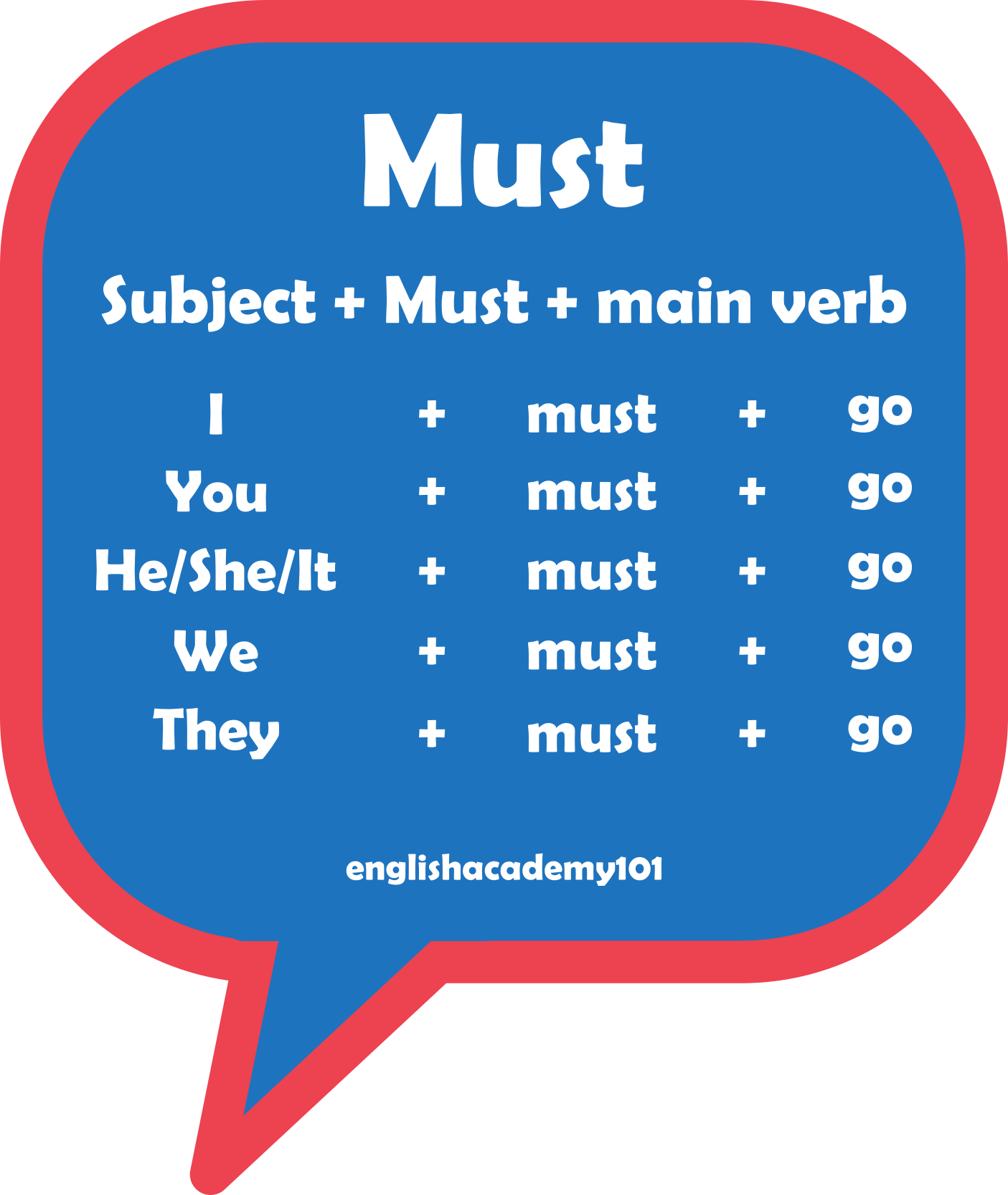
must Archives EnglishAcademy101
933 other terms for must be- words and phrases with similar meaning. Lists. synonyms. antonyms. definitions. sentences. thesaurus. phrases. idioms. suggest new. can be. suppose to be. also need to be. also needs to be. be necessary. be required. gotta be. had to be. has to be. have to be. have to have. i need. is to be. it is appropriate.

What's the Difference Must vs. Have to, Must Not vs. Don't Have to 7 E S L
1. modal verb You use must to indicate that you think it is very important or necessary for something to happen. You use must not or mustn't to indicate that you think it is very important or necessary for something not to happen. What you wear should be stylish and clean, and must definitely fit well.
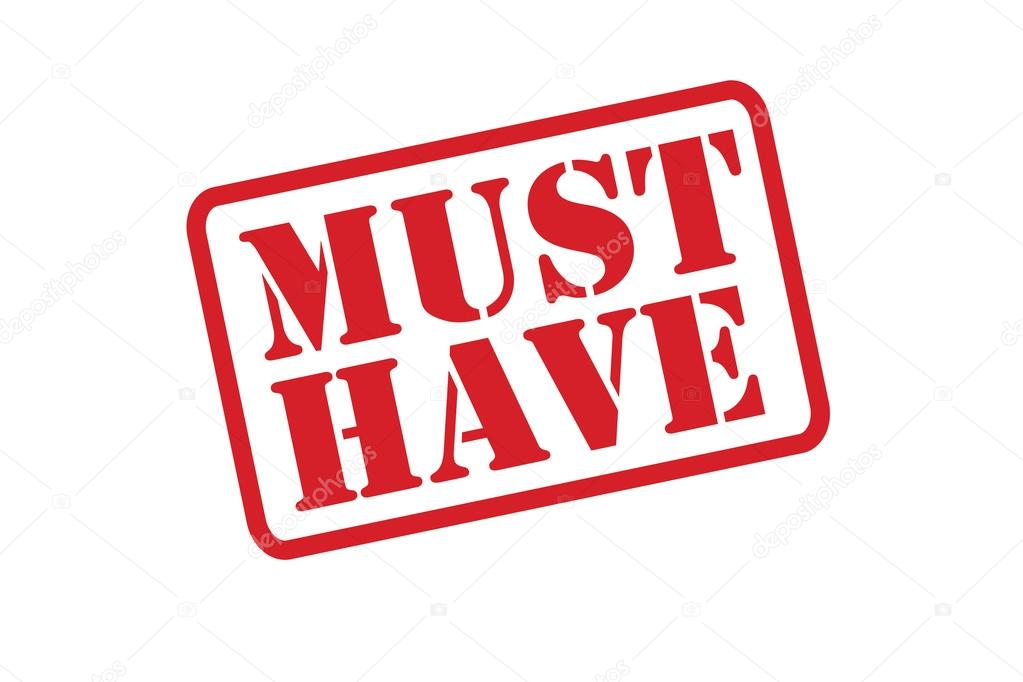
MUST HAVE red Rubber Stamp vector over a white background. — Stock Vector © gorkemdemir 53490317
Need synonyms for must be? Here's a list of similar words from our thesaurus that you can use instead. Preposition Must, or ought to, be a certain way or thing should be have to be ought to be had better be need to be have a duty to be would want to be got to be supposed to be meant to be should have been
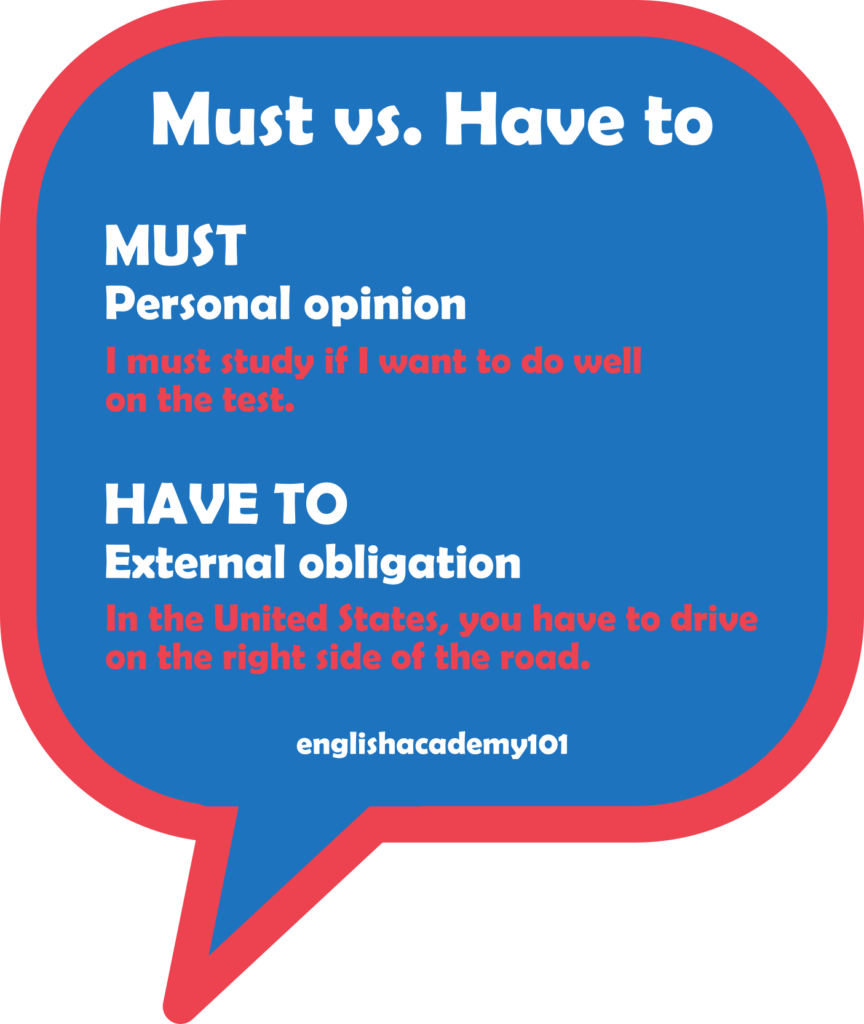
Modals Must vs. Have to in English englishacademy101
When used as a noun it implies that something is a complete necessity and should not be missed. In the phrase "it is a must," the word "must" is used as a noun. What Does "It Is A Must" Mean? When you use the phrase "it is a must," you say that the object or thing to which you are referring should not be overlooked.

must
What must be, must be - Idioms by The Free Dictionary what must be, must be what must be, must be proverb Whatever is meant or predestined to happen will happen; there is no use in regretting or resisting what one cannot control. I'm really hoping that I get this job, but what must be, must be. See also: must, what

Have to, don't have to, must, mustn't TestEnglish
Must is used to express obligation, give orders and give advice. It can only be used for present and future reference. When the past is involved, you use have to. Must is used: to express obligation. All pupils must bring a packed lunch tomorrow. to give orders firmly and positively. You must go to sleep now.

การใช้ must และ have to ต่างกันอย่างไร ใช้อย่างไร ตัวอย่างประโยค เปรียบเทียบ
used to show that it is necessary or very important that something happens in the present or future: Meat must be cooked thoroughly. I must get some sleep. You mustn't show this letter to anyone else. Luggage must not be left unattended (= it is against the rules). formal Must you leave so soon? formal "Must I sign this?" "Yes, you must."

Must vs Have to in English Lessons For English
Must is usually used to talk about the past, as in "The plane must have landed by now". It can also be used to make an a guess about the present, as in "You must be joking", or to define a rule of some sort, as in "The toys must be put away before snack time". The only appropriate use of the word must in talking about the future.
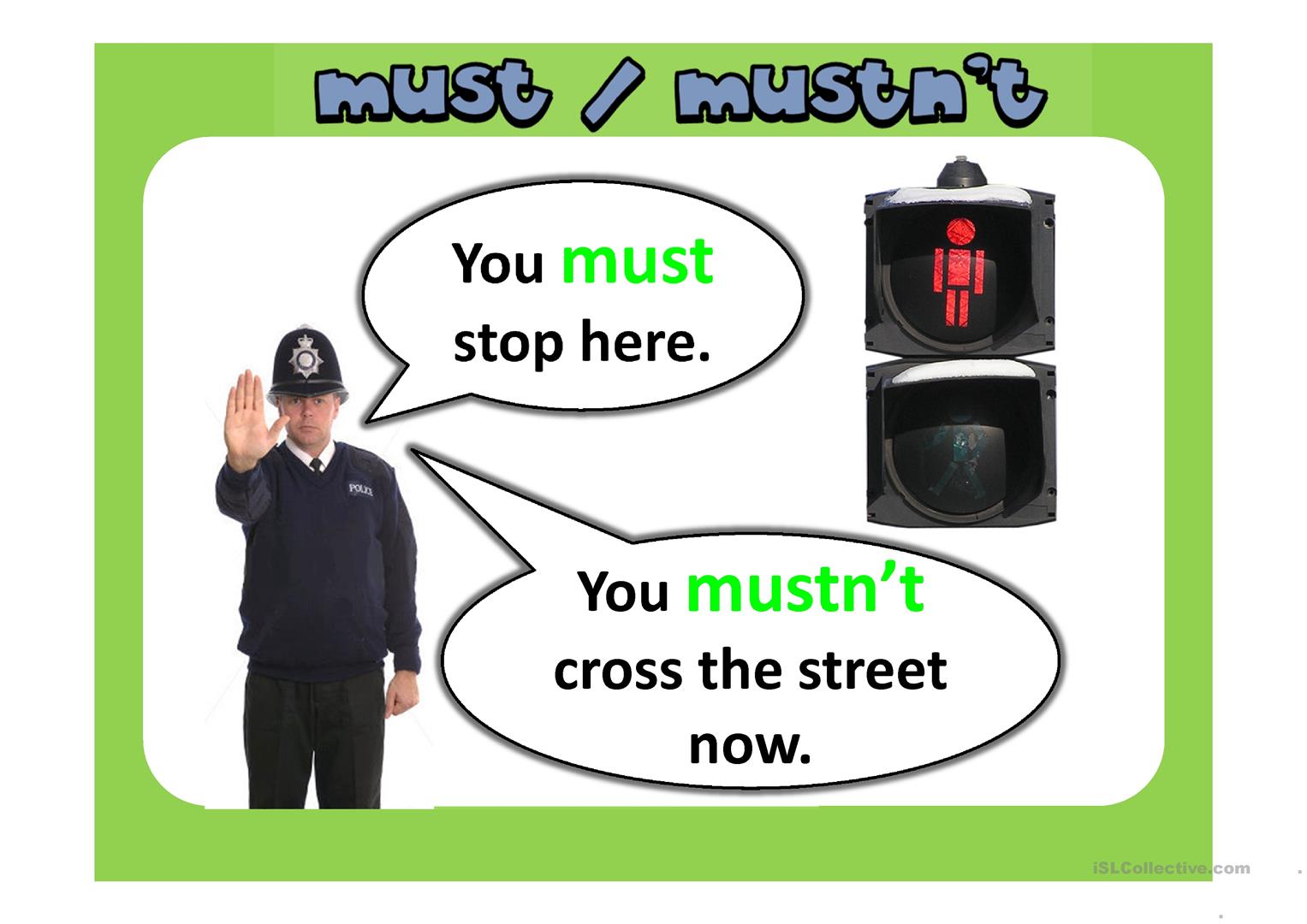
IMPROVE YOUR ENGLISH LEVEL! MUST / MUSTN'T
Pronunciation: /mʌst/. In this lesson, you will learn: The form of must. The different uses and meanings: Obligation and necessity. Deductions and conclusions. Rules and laws. Invitations and encouragement. Criticism.